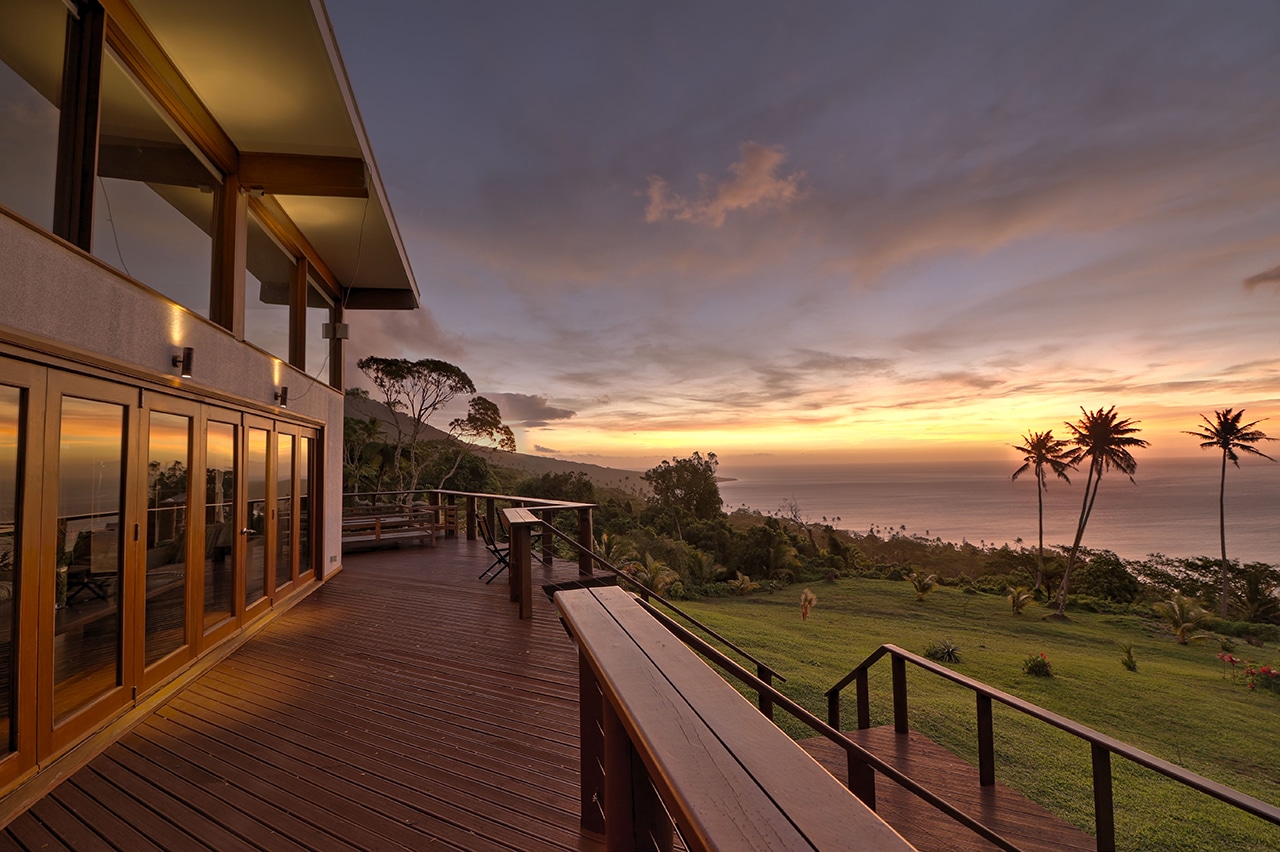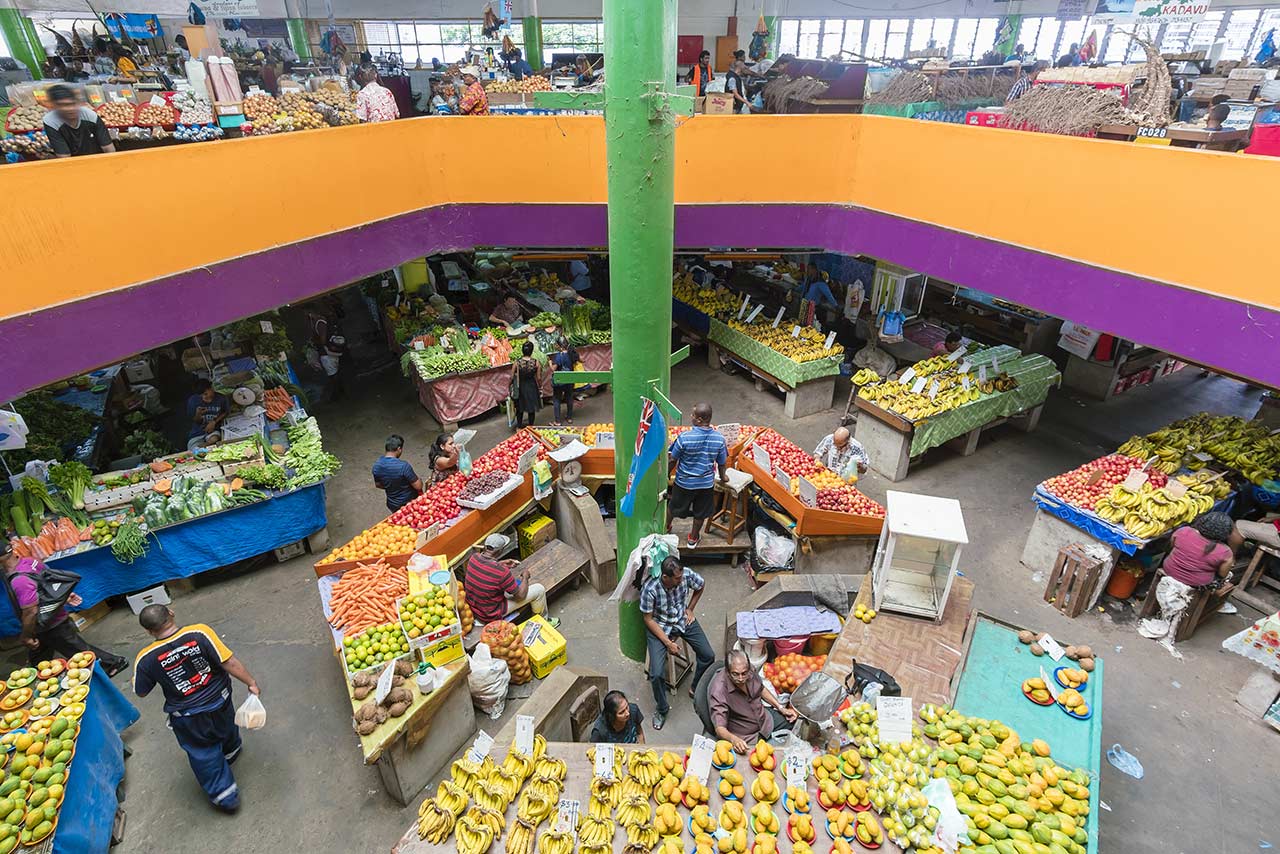How To Move To And Live In Fiji
Ready to live on an island? Here’s what to know about living in Fiji.
With one look, it's easy to see why Fiji ranks among the world's most popular honeymoon spots: waterfalls, rainforests and secluded beaches are all part of the everyday.
When J.K. and Irini Shea — then residents of Southern California — honeymooned in this South Pacific paradise in 2004, they had no idea they would be moving to Fiji on the island of Taveuni permanently in 2015, purchasing 100 acres to start a farm and AirBnB venture.
J.K. first spied his future home during a scuba diving outing and recalls, "I thought it was the most beautiful island I had ever seen."
Now, he and his wife can't picture themselves not living in Fiji. Here's what day-to-day life in Fiji is like and how you can move to Fiji.
What jobs can I find?
"You have to be creative and combine different opportunities," said J.K. Shea of Taveuni, also known as the Garden Island. "We are on a remote island without a lot of industry. It would be really hard for an American to find a job here."
What is easy, however, is agriculture.
"Almost anything grows here," Shea said.
On the couple's farm, that means mostly coconuts and taro, sales of which supplement the income gained from renting out Green Fiji Plantation, their three-bedroom home available through AirBnB and their own website.
On Viti Levu, the main island of Fiji, Shea sees Americans readily finding jobs in medicine and education, as well as starting businesses. For their part, Fiji provides tax breaks and other incentives to outside investors through the organization Investment Fiji.
Can I buy land?
Want to live in Fiji? You'll need land. In Fiji, three types of land are available for purchase. The type of Fijian property that's most like the American system is locally known as "free hold" — as in you're purchasing full rights for land that you could pass on to your children and grandchildren.
There is also a category of real estate called "native lease," which is tribally owned but can be owned or rented for specified amounts of time.
The third type is called "crown lease." This type of property is owned by the government but is also available for short-term use.
How do I bring my pets to the island?
Bringing a dog or a cat to Fiji is slightly complicated but not impossible. Your pet will need a microchip as well as an import permit, plus proof of recent rabies vaccinations and a blood-titer test. Then, upon arrival, your pet will be quarantined from 30 to 120 days.
Where do I buy groceries?
Don't expect to make one run to a grocery store and be done; rather, at the main market, you'll pick up dry goods, such as rice, cereal and other non-perishables, and the rest, including fish and vegetables, come from roadside stands.
"There are five fish markets on our island, with a few right on the coast where you can buy straight off the boat," Shea said. "We can buy a 40-pound tuna for $50 USD, and that will last a whole family for a week."
Life on Taveuni is made easier in part thanks to the Cost-U-Less, a fairly typical grocery store on Viti Levu. For $5 a box, they ship groceries to most outlying islands. This keeps most expats fairly well stocked, but, for favorite brands of certain foods, they rely on visiting friends and family.
"We can't get Cliff bars in Fiji, so we ask people visiting from the States to bring them," Shea said.
What are the healthcare options?
"It's a necessity here to have a medical-evacuation policy," Shea said.
Shea seeks treatment on Taveuni only for non-life-threatening situations, such as a broken arm or an infection. For more serious conditions, Shea would travel to New Zealand, Australia, Hong Kong or Singapore to find care options.
Will online retailers deliver?
"There is no online shopping in Fiji," Shea said.
Even if a retailer will ship to the South Pacific nation, packages get caught in customs. You'll be sent a snail-mail postcard alerting you that the package has arrived, and then you must return that card. That process takes between three and four weeks, making he gratification anything but instant.
"I really miss Amazon and eBay, so I'm looking into a service called MyUS.com, which charges a monthly fee to provide you with a Florida address. Then they palletize and ship your purchases. My friends highly recommend it."
How do I move my belongings?
When you first move to Fiji, you're allowed one container, be it 20- or 40-foot long, which you can fill with belongings, all of which won't be subjected to import taxes. But after that, "The country is really strict on customs," according to Shea.



